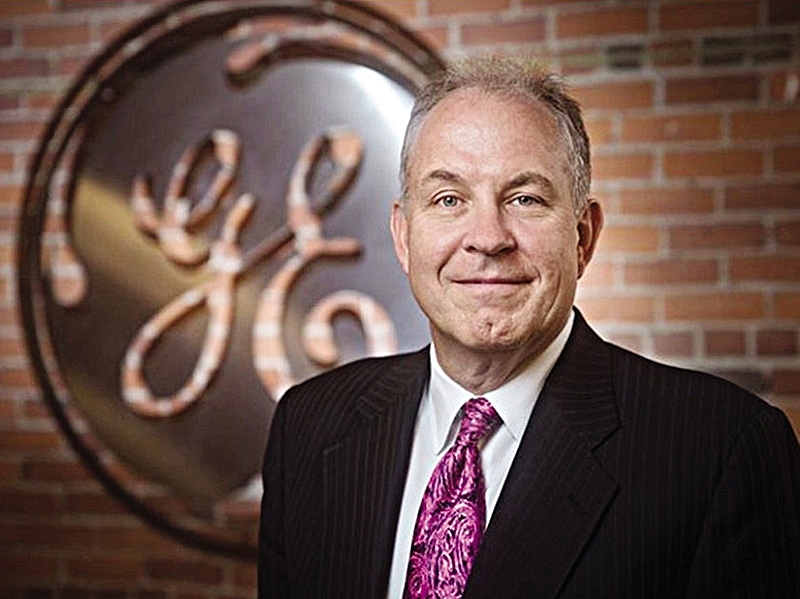Fueling innovation throughout ASEAN
 |
| In the Industry 4.0 era, General Electric (GE) is ready to partner up with ASEAN member economies, including Vietnam, to realise the power of technology and innovation. |
Why do you think Industry 4.0 was chosen as the main theme for the World Economic Forum on ASEAN?
The World Economic Forum (WEF) this year has gathered policymakers and focused on finding the optimal way to regulate Industry 4.0, hence the theme. It is a very important policy issue that goes beyond technical innovation and requires co-operation between the government, businesses, and the academia around the world.
Industry 4.0, ranging from industrial internet and labour technology to artificial intelligence or robotics, will ensure the free flow of data across borders, which means policymakers must find the balance between protecting interest and citizen privacy. Moreover, Industry 4.0 will cause major displacements, such as people losing jobs or self-driving cars replacing traditional vehicles. These are very important issues that need harmonised action from policymakers and the WEF. In general, I think WEF on ASEAN is a great opportunity to highlight the benefits of regional co-operation to promote trade, investment, and other business activities.
How will Industry 4.0 affect the supply chain and human resources in the ASEAN, especially in Vietnam?
I think the ASEAN can capitalise on Industry 4.0 to improve connectivity and become an important part of the global supply chain. In Vietnam, our plant in Haiphong is a great example of how talented and motivated Vietnamese workers are. The plant is one of our first five Brilliant Factories around the world to use advanced data analytics to improve its operations. Our team has improved their productivity by 30 or 40 per cent and we are looking to hire approximately 300 skilled employees. Talents are part of the reason why Vietnam is making a successful transition from industries like textile to electronic manufacturing and software production. We should think about the right way for ASEAN governments, including Vietnam, to work with universities and businesses to address the human implications of Industry 4.0 and to make sure sufficient retraining programmes are on offer to the current workforce.
What is your personal experience with Industry 4.0? How can Vietnam utilise Industry 4.0 to improve economic growth?
I think changes are part of progress, and Industry 4.0 is just like the First, the Second, and the Third Industrial Revolution. In a speech of the CEO of GE back in 1936, he talked about the threats modern technology posed to employment and how companies like GE must deal with it.
Personally, I believe technology itself is not a new issue. It has been around for over a hundred years and has been actively discussed. Also, it was the right time for WEF to take place in the ASEAN, as the region – with Vietnam in the lead – represents the typical success story that organisations like the WEF are trying to replicate around the world.
Vietnam has been successful in attracting significant amounts of foreign direct investment (FDI). The fewer the barriers that the country has for FDI, the better it is going to be. Vietnam has significant potential to improve its economy by engaging in industrial internet and data analysis. Also, I believe GE can play a major role in helping Vietnam realise its potential.
GE has reaped major successes in Vietnam in the past 25 years. What is your next goal in the market?
Right now, GE equipment make up more than 30 per cent of Vietnam’s power capacity, and we have also upgraded thousands of kilometres of the national transmission line and supplied transmission equipment for a great number of projects. More than 50 per cent of hospitals in Vietnam use at least one piece of GE equipment. 25 years is a relatively short time, so I am excited to see what we can do in the next 25 or 125 years here.
As the middle class in Vietnam continues to grow, people will require not only increasing access to healthcare, but also improvements in healthcare facilities, called precision healthcare by experts. I think GE’s healthcare business will play a critical role in public-private partnerships with hospitals to ensure people in Vietnam get the quality healthcare they need.
Vietnam is also looking to address environmental challenges posed by the rising demand for energy. This opens the doors for the use of critical technology in coal-fired power plants and also increase renewable energy, gas, and other environmental-friendly sources in the energy mix – an area where GE is an expert.
There will also be a huge increase in air traffic, leading to concerns about noise reduction and environmental protection – again an area where GE’s expertise can come in handy.
We think that there is always opportunity for growth, and I am personally never satisfied before we do all we can to improve.
What the stars mean:
★ Poor ★ ★ Promising ★★★ Good ★★★★ Very good ★★★★★ Exceptional
Related Contents
Latest News
More News
- Addressing Vietnam's energy challenges with aeroderivative gas turbines (February 28, 2023 | 09:33)
- How to sprint ahead in 2023’s worldwide energy priorities (February 08, 2023 | 13:55)
- Boosting Vietnam's grid stability through gas turbine technology (November 22, 2022 | 20:02)
- Healthcare trio collaborates to provide thousands of free breast scans (October 27, 2022 | 17:19)
- GE Healthcare's vision for AI-backed radiology (September 29, 2022 | 11:53)
- GE brand trio to shape the future of key industries (July 19, 2022 | 15:35)
- GE unveiling brand names and defining future (July 19, 2022 | 15:16)
- GE: the shortest route towards sustainability (July 18, 2022 | 08:00)
- Be proactive in an uncertain world (May 20, 2022 | 11:40)
- GE secures first 9HA combined cycle power plant order in Vietnam (May 16, 2022 | 17:06)

 Tag:
Tag:




















 Mobile Version
Mobile Version